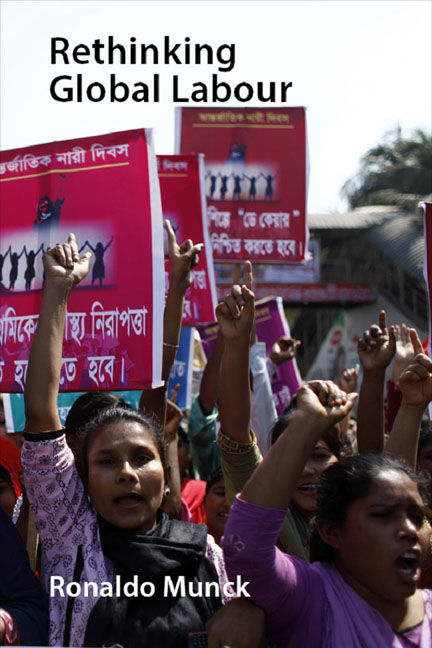5 - Workers South
Published online by Cambridge University Press: 09 August 2023
Summary
The processes of globalization have brought previously closed (or semi-closed) economies into the global capitalist economy, but have also excluded parts of the world – such as broad swathes of Africa – from the new order. This chapter traces the fate of workers in the Global South from the transition from colonialism to the new international division of labour to the era of globalization, with particular attention paid to transformations in countries such as Brazil, South Africa and South Korea, where considerable levels of industrialization were achieved. I also examine what was once particular to the South – but is now also increasingly a Northern phenomenon – namely the high level of informal working relations and practices. There is a particular focus on women working worldwide, bringing to the fore the gendered nature of the globalization process, which has different impacts across regions and classes. The final section, on Polanyi’s double movement, shows the extent to which we cannot really study workers in the North and South separately any more. The dialectic of the double movement has created new working classes and new forms of resistance in all parts of the world, which, while distinct, have similar roots in the uneven accumulation of capital on a global scale.
It is sometimes forgotten, or denied, by the critics of development that “[t]he period of 1950 to 1980 was also – and in an important sense – the Golden Era of development for the poor countries of the world” (Singh 1994: 171). This is not the wishful thinking of a modernization theorist or the preaching of a World Bank apologist but the sober verdict of the ILO. It is indeed vital to recognize the unprecedented economic development of the South since the Second World War, in spite of all its unevenness and its glaring inequalities. In fact, the industrial revolution in the South actually bettered the record of the Global North in the second half of the nineteenth century. As Ajit Singh summarizes this startling historical reality: “The South did this in half the time, at twice the growth rates, and with five times the North’s population in the nineteenth century” (Singh 1994: 171– 2).
- Type
- Chapter
- Information
- Rethinking Global LabourAfter Neoliberalism, pp. 115 - 138Publisher: Agenda PublishingPrint publication year: 2018



